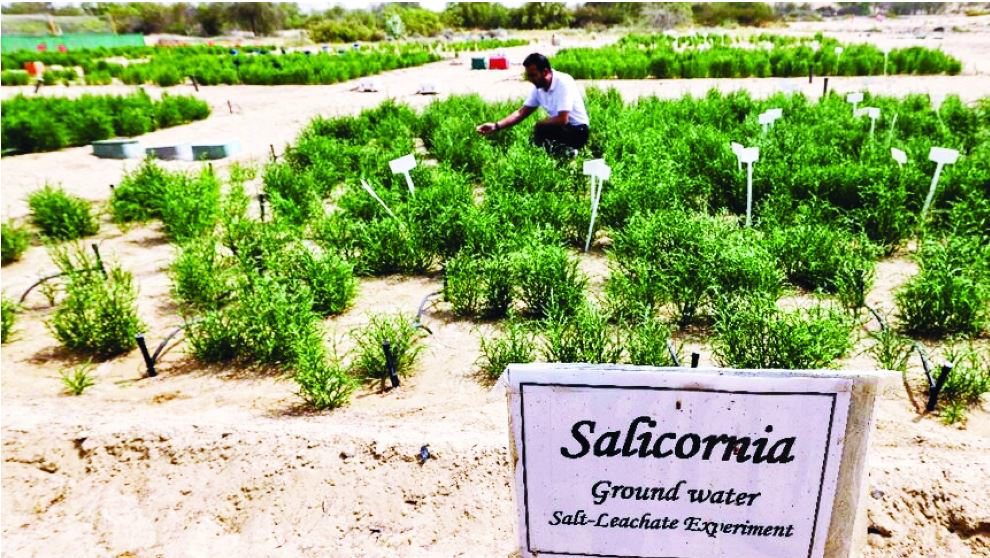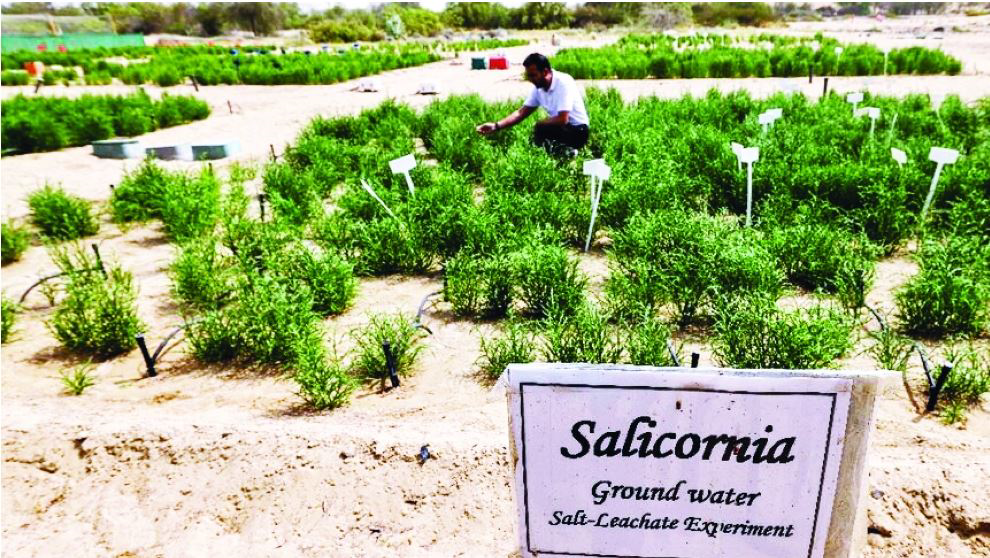A plant in the UAE desert helps make a “healthy” burger


Al-Kharizia or salicarni, grown using salt water thrives on the desert farms of the Emirates, and is currently helping to produce “healthy” burgers in a frozen food company, demonstrating the potential of sustainable agriculture in the most difficult conditions, according to Agence France-Presse.
Khuraizah, a succulent plant that stores water, is used as a substitute for salt in making burger patties by Global Food Industries, in an agricultural success in the UAE, which imports nearly 90% of its food needs.
“You get a salty flavor with less sodium, but you also get other benefits,” Tina Siegsmond, head of marketing and innovation, told AFP. The asparagus-like plant reduces the sodium content by 40% in the company’s burgers, which also contain chicken, quinoa and curly cabbage.
This plant genus grows in parts of North America, Europe, South Africa and South Asia, and Al Khuraiza is ideal for harsh Emirati climates, and contains anti-bacterial and anti-inflammatory properties, Siegsmond said.
It was started last year in a number of farms across the UAE as part of an experiment using saline water runoff from desalination plants by the Dubai-based International Center for Biosaline Agriculture (ICBA).
ICBA chief scientist Augusto Lopez-Laval said research is now underway to produce more of the “high-value crop” that sells for $20 a kilo in France.
“We’ve gone from… building this prototype to experimenting on a large scale with eight farmers. The question now is how to scale it up,” Lopez-Laval told AFP, adding that in the future khariza could become a really important food ingredient. If there is an economic value and a production system is developed for this purpose, it can become a substitute for salt and any other micronutrients added today industrially to processed foods.
Until that happens, Sigsmond says Khuraiza remains a niche product and its health benefits are unknown to most people. “It’s not a big profit product but we believe in it and we’ll keep going,” she says
=




